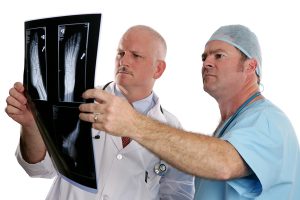Recent Modifications to the Eligibility Requirements for Disaster Medicine Board Certification
 The American Board of Disaster Medicine (ABODM) was created to provide a platform for physicians who wish to demonstrate their mastery of the core competencies required to practice disaster medicine. Board certification eligibility requirements for the ABODM were recently modified.
The American Board of Disaster Medicine (ABODM) was created to provide a platform for physicians who wish to demonstrate their mastery of the core competencies required to practice disaster medicine. Board certification eligibility requirements for the ABODM were recently modified.
The changes, which are listed below, do not supersede the general eligibility requirements for the American Board of Physician Specialties (ABPS).
Under the new requirements, Disaster Medicine Board Certification applicants must have a current, unexpired board certification granted the ABMS, AOA, ABPS or Royal College of Physicians and Surgeons.
Applicants also must have at least one of the following forms of disaster medicine experience and training:
- Completion of an approved fellowship
- Successful completion of seven days’ field experience, with total deployment to one or more disaster venues with a recognized disaster agency.
Training and community engagement, as shown by completion of the following:
- Basic Disaster Life Support
- Core Disaster Life Support
- Advanced Disaster Life Support (or full field exercise equivalent)
- At least one year of active participation on a national, state, regional, county, hospital or healthcare agency or facility disaster committee
Applicants must also submit documentation of successful completion of four free courses offered online through FEMA. These courses focus on the processes and procedures for national disaster response and the incident command system. For more information, check the FEMA Emergency Management Institute website.
In addition, applications must submit documentation of a minimum of 50 hours of disaster-medicine related, AMA Category 1 continuing medical education earned within the past two years. All hours must be clearly collated and summarized.
As always, the new requirements do no supersede the general eligibility requirements of the ABPS, which include:
- Conformity with the Code of Ethics of the ABPS.
- Graduation from a recognized college of medicine holding an M.D. or D.O. degree. In the case of foreign medical schools, an English transcription of the document is also required. Graduates of foreign medical schools must also include a copy of their Educational Commission for Foreign Medical Graduates (ECFMG) Certificate
- Possession of a valid and unrestricted license(s) to practice medicine in the United States, its territories or Canada
- Submission of a current curriculum vitae, which includes medical school experiences and degrees earned, in chronological order
Contact the ABPS to learn more about the changes to the eligibility requirements for Disaster Medicine Board Certification. The ABPS is the official multi-specialty board certifying body of the American Association of Physician Specialists, Inc.






